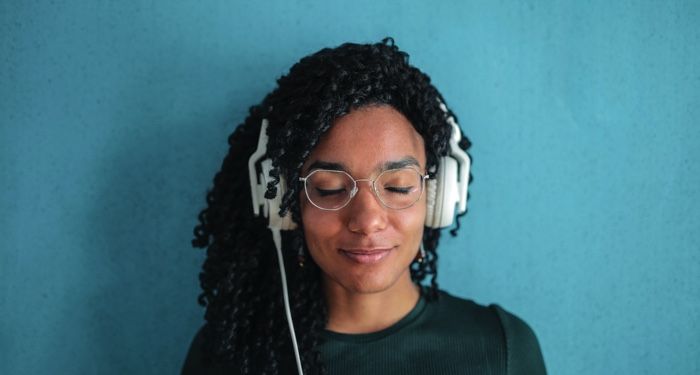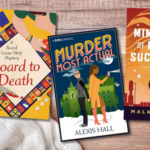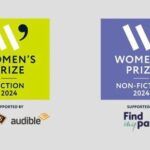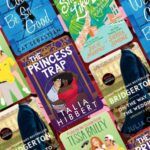
Audiobooks and ADHD
Like many women, I was diagnosed with ADHD late in life, when I was 37. It took referrals, persistence, rejection, excellent state insurance, and many months to get a diagnosis. And this was for a middle class, insured white woman. Women of color have an even more difficult time getting diagnosed. I was both relieved and rage-filled. My life could have been so much easier! I could have ended the constant mantra in my head asking what was wrong with me. What was wrong with me that I couldn’t do what was easy for my colleagues? What was wrong with me that I was an English major who didn’t finish a book in college? What was wrong with me that I wanted to be a reader but couldn’t read? Continue ad nauseum.
Audiobooks saved my life long before I had my diagnosis, long before I was comfortable enough with who I was to stop masking. I discovered them right around the time I was getting divorced while living in a foreign country, isolated from any friends or family. Audiobooks kept me company and kept me sane. Since my diagnosis, however, I’ve gone from falling in like to falling in love with them.
I can’t speak for everyone with ADHD, obviously, as it manifests differently for different people, but audiobooks have been a gamechanger for me. Once I got into audiobooks, the number of books I read a year doubled. I’ve written before about how this number more than doubled again when I started reading romance, but what I didn’t mention was that almost all the romance I read that year was in audio.
The Breakdown
There are three types of ADHD: predominantly hyperactive-impulsive, predominantly inattentive, and combined. Hyperactive-impulsive is the type that people traditionally think of where a person can’t sit still, stop talking, interrupts, is loud, and has trouble with impulse control. Inattentive is the type often found in girls and women. Its symptoms include making “careless” mistakes, missing details, forgetfulness, difficulty following directions, has trouble staying organized, resists starting tasks that require mental energy, and losing belongings frequently. Many of these symptoms in women are seen as character traits, like being shy or talkative, rather than for the symptoms they are. Also they commonly present alongside other conditions such as anxiety or eating disorders, which can have overlapping symptoms.
Listen & Move
One of the biggest advantages for me is that I can listen while I move. I was diagnosed with combined type ADHD and get the wiggles as well as the disappearing into daydreams. I’m capable of sitting down and reading for long periods, but after a while I start to get physically uncomfortable. I’m fidgety and feel an unease that settles behind my sternum and at the back of my knees. Itching to get up and move. I also find it difficult to sit down and focus on reading when there are chores or other things around the house that need to be done. They are distracting to me. Doing both at the same time keeps my body feeling good.
Also, pairing these activities has helped considerably with executive dysfunction. Doing something physical while listening helps me remember what’s happening in the story. It improves my ability to multitask and getting two things done at once helps with time blindness — the inability to be aware of time and its passage, something innate in most adults. More than anything, it helps with self-motivation. It’s not uncommon for weeks of clean laundry to pile up in the hamper, unfolded because I cannot think of a more tedious task. Pairing folding laundry with listening to my current read not only makes it tolerable, but serves as good motivation as well. I won’t let myself do one without completing the other.
Listening to audiobooks in the car helps me focus while driving. The temptation to look at my phone, text while driving, or let my mind wander from boredom and not pay attention to what I’m doing decreases. It’s not without its risks, however. I’ve missed an exit off the interstate more than once because I was so engrossed in my audiobook. Missing an exit is much better than missing that the car in front of you has put on their brakes, though.
Anxiety
It is very common for people with ADHD to also suffer from anxiety. It is more prevalent in women to suffer from a comorbidity — combination of conditions, especially anxiety, while also having ADHD. The ability to easily focus my thoughts on something without the frustration of having to sit still for too long or to read and reread the same three paragraphs over and over has eased my anxiety substantially. When I’m especially overwhelmed or feel like I’m in a thought spiral I can’t escape, listening to an audiobook while walking the dog helps me break the spiral and complete the stress response cycle. Another way I do this is by sitting down with a coloring book while listening to audiobooks. Coloring books have proven to reduce stress. For me, the soothing nature of coloring, plus the movement, and the story to focus my mind on takes me from ten to zero fast.
Read the Hard Stuff
I’m a librarian and read a lot for my job, often on deadlines. While the deadlines and schedule help, the urge to resist tasks that can be mentally taxing is an ADHD symptom I have. Combine a deadline with a book I know won’t be an easy read, and it’s extremely difficult for me to start. Audiobooks make it less daunting of a task for me to tackle since I know that it will probably be an overall pleasurable experience, even though the subject matter is more difficult.
It keeps books in my hand much longer than one I have to read with my eyes. Add in a good narrator and I’m hooked to hang in longer than I would for a book I didn’t love. I’m quick to abandon visual books because it was hard enough for me to focus on them in the first place with perfect conditions. And now the author throwing in words I don’t know the definition of and making long-winded points, I’m definitely putting it down. Listening though, will often get me caught up in the story or subject matter in a way it wouldn’t have done if I was reading it.
I know I don’t need to reiterate this to y’all, but the question needs to shift from being “do audiobooks count?” to “should audiobooks count more?”







